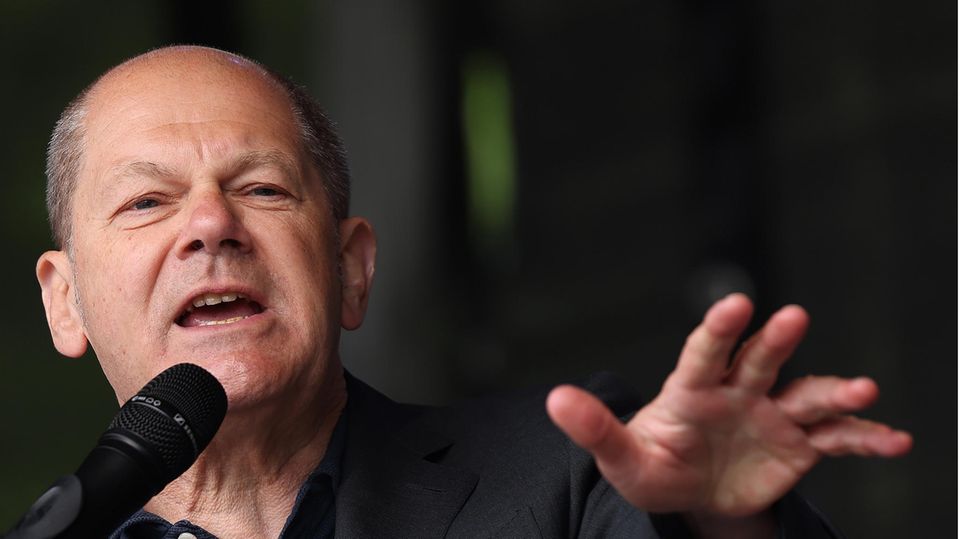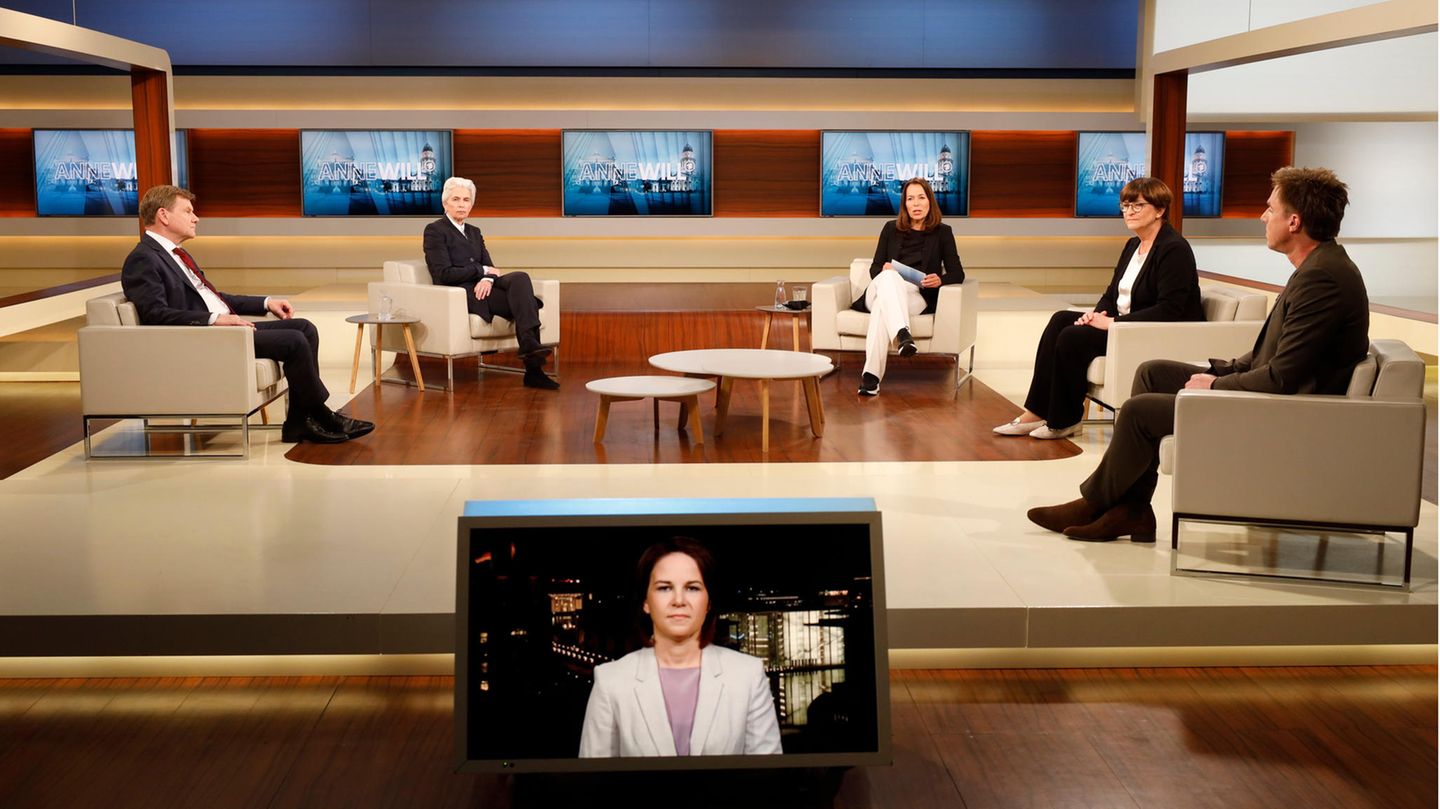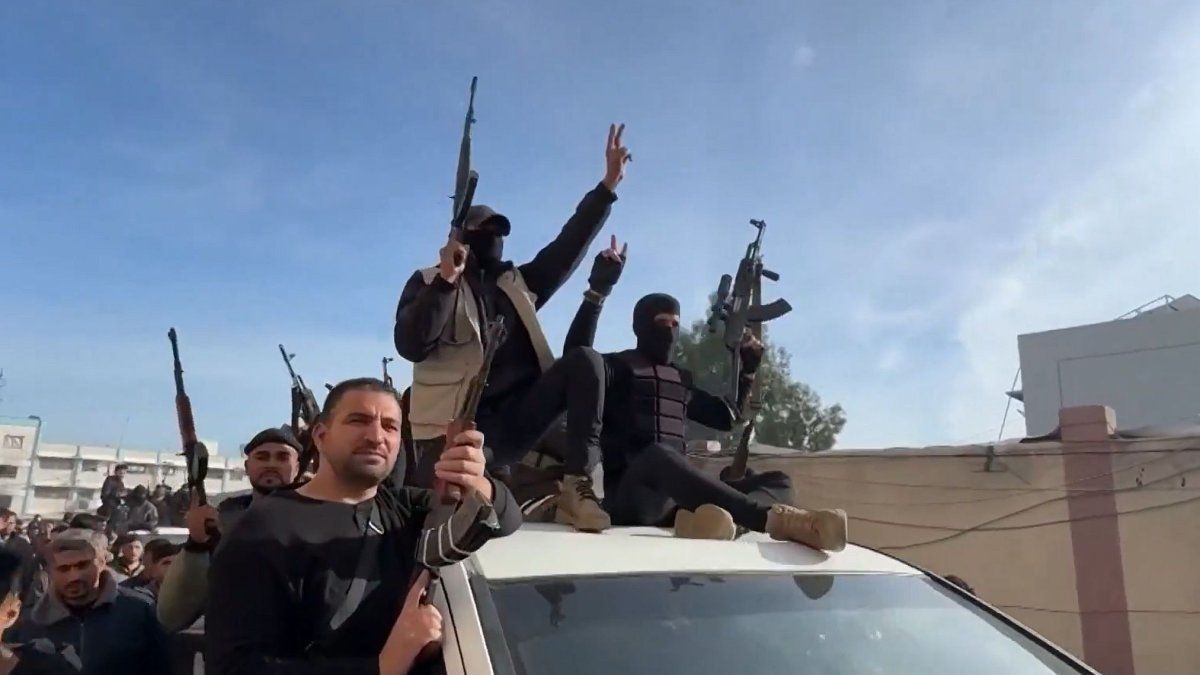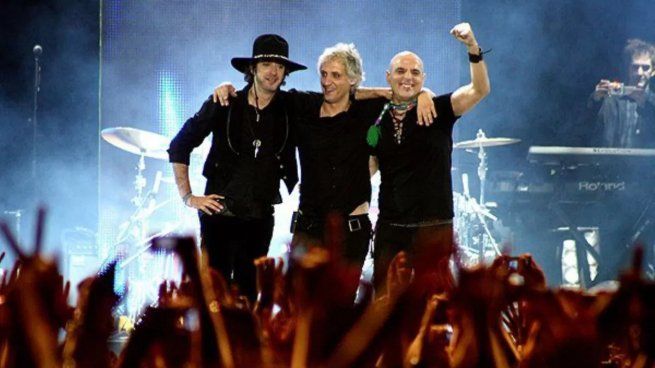TV debate
Germany discusses Alice Schwarzer & Co.’s open letter on Ukraine to the Federal Chancellor. Anne Will, on the other hand, was about Scholz himself, especially his way of communicating, the result: an hour in the approximate.
By Ingo Scheel
A week ago, Chancellor Scholz spoke out against delivering heavy weapons to Ukraine, saying that Germany did not want to become a party to the war. After criticism from all sides, a sudden change of course: Germany wants to provide Ukraine with anti-aircraft tanks. Is it all just a question of communication? Only a quarter of Germans agree with the chancellor, the majority see Scholz as having a duty to play with open cards. Does the chancellor need to explain his politics better? And what other German support for Ukraine will there be in the future? And anyway: tanks in the war zone – where does Germany’s Ukraine policy lead?
The following guests discussed this in the evening at “Anne Will”:
- Annalena Bärbock (Alliance 90/The Greens, Federal Foreign Minister)
- Saskia Esken (SPD, party leader)
- Veronica Grimm (Economist, member of the Advisory Council for the assessment of overall economic development)
- Marie Agnes Strack Zimmermann (FDP, Member of the Bundestag and member of the Federal Executive Committee) Parliamentary State Secretary aD)
- Johann David Wadephul (CDU, member of the German Bundestag and deputy chairman of the CDU/CSU parliamentary group for foreign affairs and defence)
- Markus Feldenkirchen (Political author in the “Spiegel” capital city office)
The first 20 minutes belonged to the Foreign Minister, for Annalena Baerbock it went straight to the Will-Grill. Are the newly decided tank deliveries to the Ukraine the right measure, what is the plan to see Russia so weakened that it can never again wage an aggressive war and above all: Should Olaf Scholz not at least try his decision-making path, which he perceives as a swerve to explain? That’s what it looked like, the topic of the opening third.
Annalena Baerbock tries the balancing act
And Baerbock seemed to falter a little but didn’t fall, trying to slalom between government loyalty and the larger context. “This is not a German decision, but a European one,” said Baerbock. “Women are raped, children are shot. We sat at the same table until the end, the answer was bombing.” In a nutshell: “A big neighbor attacks a small one, we don’t accept that. Putin has made it clear that if in doubt he would also attack Moldova and the Baltic states. If we just accept it now, that’s an invitation for more.”
In the remaining 40 minutes, the mission statement, which brought little that was new, was primarily followed by discussions about the big ‘how’, less about the ‘why’, as in the “crime scene” shortly before. For example, the question of whether it’s okay that Merz is now going to Kyiv, or whether it’s just domestic political interests. Marie-Agnes Strack-Zimmermann saw it pragmatically: “It’s not a coffee trip. It’s not about who takes the best photos.” The BKA also tried to prevent her from traveling to Ukraine. What Merz wanted to achieve in Kyiv apart from “a selfie with Selenskyj?” Will wanted to know. Johann David Wadephul considered the trip at least “a good sign”.
Sharp criticism of Olaf Scholz
The Chancellor got off less well with him. “Scholz is a communicative failure,” said the deputy chairman of the CDU/CSU parliamentary group for foreign affairs and defense. The Greens, of all people, received praise, saying Habeck and Baerbock were “the only ministers who communicate consistently.” Markus Feldenkirchen gave the chancellor credit for the exceptional situation. “Slowness would be quite legitimate,” says the “Spiegel” author, one only has to express oneself and admit that one was wrong. That, however, keyword hubris, would not take place.
And while Saskia Eskens emphasized that it was important to send a signal to the population that we were working together, it was also important not to keep listing what Germany had already delivered. Strack-Zimmermann indicated that not everything that is delivered may also be revealed. Anne Will tried to tease something out of that, but Strack-Zimmermann was wary. “I’m not going out here in handcuffs,” her full-bodied reaction.

Little news about the war in Ukraine
In the end, nothing really new stuck. Yes, the Chancellor’s communication is suboptimal. Putin is listening. Nobody is against diplomacy, but now only heavy weapons would help – the only language that Putin still understands. Alice Schwarzer, Dieter Nuhr and Lars Eidinger, to name three names, see things very differently. The open letter signed by them and two dozen other artists and intellectuals, the hot topic of the day in the media, was only touched on in a single subordinate clause. Too bad.
Source: Stern
David William is a talented author who has made a name for himself in the world of writing. He is a professional author who writes on a wide range of topics, from general interest to opinion news. David is currently working as a writer at 24 hours worlds where he brings his unique perspective and in-depth research to his articles, making them both informative and engaging.




